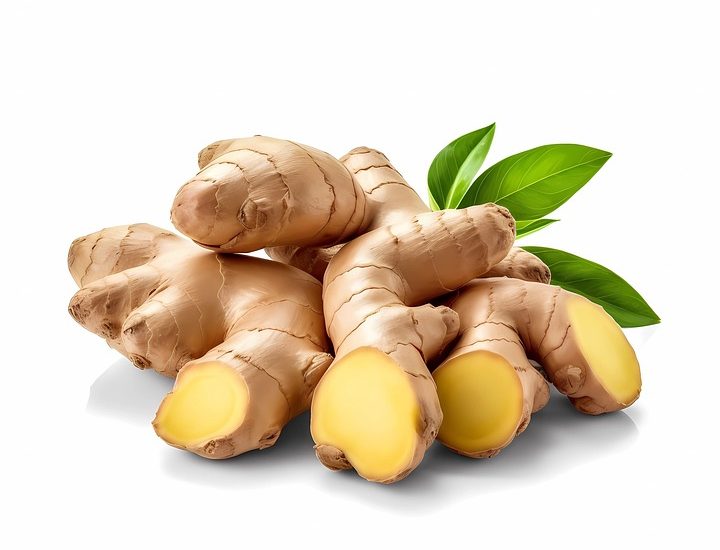Inflammation is a natural process that helps your body heal. However, chronic inflammation can lead to various health issues, including heart disease, diabetes, and autoimmune disorders. Adopting an anti-inflammatory lifestyle can help reduce this chronic inflammation and improve your overall wellbeing. In this article, we will explore ten essential habits to incorporate into your daily life for a healthier, inflammation-free existence.
Understanding Inflammation
What is Inflammation?
Inflammation is the body’s response to injury or infection. It is characterized by redness, swelling, heat, and pain. While acute inflammation is beneficial for healing, chronic inflammation can be detrimental, often triggered by poor diet, lack of exercise, stress, and environmental factors.
Why Focus on an Anti-Inflammatory Lifestyle?
Shifting to an anti-inflammatory lifestyle can help mitigate the risk of chronic diseases. By making specific lifestyle changes, you can boost your immune system, enhance your mood, and improve your overall quality of life.
1. Eat a Balanced Diet Rich in Whole Foods
A diet laden with processed foods can contribute to inflammation. Instead, focus on consuming whole foods that boost your body’s healing abilities.
- Fruits and Vegetables: Brightly colored fruits like berries, oranges, and vegetables like spinach and kale are rich in antioxidants and vitamins.
- Healthy Fats: Incorporate sources of omega-3 fatty acids, such as walnuts, flaxseeds, and fatty fish like salmon.
- Whole Grains: Opt for whole grains such as quinoa, brown rice, and oatmeal instead of refined grains.
2. Limit Sugar and Refined Carbohydrates
Excessive sugar and refined carbohydrates can lead to spikes in insulin levels and inflammation. Consider the following:
- Avoid Sugary Beverages: Soft drinks and energy drinks are typically high in sugar.
- Choose Natural Sweeteners: If you need sweetness, prefer natural alternatives like honey or maple syrup in moderation.
3. Stay Hydrated
Proper hydration aids in maintaining bodily functions and reducing inflammation. Aim for at least 8-10 glasses of water per day. Consider these tips:
- Add Lemon: Infuse your water with lemon or cucumber for added flavor and benefits.
- Drink Herbal Teas: Teas like green tea contain antioxidants that can help reduce inflammation.
4. Incorporate Regular Physical Activity
Exercise is a powerful tool in the fight against inflammation. Aim for at least 150 minutes of moderate aerobic activity each week. Here are some effective forms of exercise:
- Cardiovascular Exercises: Such as walking, jogging, and cycling.
- Strength Training: Building muscle can help regulate inflammation levels.
- Yoga and Stretching: These practices can enhance flexibility, reduce stress, and improve circulation.
5. Manage Stress Effectively
Chronic stress can significantly contribute to inflammation. Finding effective stress management techniques is crucial for longevity and health.
- Mindfulness and Meditation: Regular practice can help calm the mind and body.
- Deep Breathing Exercises: These can reduce cortisol levels and enhance relaxation.
- Connect with Nature: Spend time outside to improve mental health and reduce stress.
6. Get Quality Sleep
Sleep and inflammation are closely linked. Lack of sleep can exacerbate inflammation, while quality sleep promotes healing and recovery.
- Establish a Sleep Routine: Go to bed and wake up at the same time every day.
- Create a Sleep-Friendly Environment: Keep your bedroom dark, quiet, and cool.
Aim for 7-9 hours of sleep per night for optimal health benefits.
7. Embrace Healthy Fats
Including healthy fats in your diet can significantly lower inflammation.
- Olive Oil: A staple in the Mediterranean diet, rich in oleocanthal, which has anti-inflammatory properties.
- Avocados: Loaded with monounsaturated fats and antioxidants.
Include these fats in moderation to take advantage of their health benefits.
8. Avoid Inflammatory Foods
Certain foods can exacerbate inflammation. Being mindful of your diet can lead to positive changes.
- Processed Foods: Fast food, snack foods, and ready meals often contain unhealthy fats and preservatives.
- Trans Fats: Common in fried foods and baked goods, trans fats can promote inflammation.
by identifying and eliminating these foods, you will be contributing to a healthier lifestyle.
9. Consider Supplements
While it’s always best to obtain nutrients from food, certain supplements may help ease inflammation:
-
Omega-3 Fatty Acids: Usually found in fish oil supplements.
-
Curcumin: The active compound in turmeric that has potent anti-inflammatory properties.
Always consult a healthcare professional before starting any new supplement regimen.
10. Maintain a Healthy Weight
Excess body weight can increase inflammation in the body. Aim for a balanced approach to maintaining a healthy weight:
- Caloric Intake: Be mindful of your calorie consumption and try to eat balanced meals.
- Weight Management: Engage in regular physical activity to help maintain a healthy weight.
Conclusion
Incorporating these ten essential habits into your daily life can help you build and sustain an anti-inflammatory lifestyle. From eating a balanced diet to managing stress effectively, each of these habits contributes to reducing chronic inflammation and enhancing your overall health.
Remember, every small change counts. Start today, and your body will thank you tomorrow. Prioritize your health and well-being by embracing an anti-inflammatory lifestyle, and enjoy the benefits of a healthier, more vibrant life!
Keywords to Incorporate:
- Anti-inflammatory habits
- Chronic inflammation
- Healthy lifestyle changes
- Inflammation reduction
- Whole food diet
By following the guidelines in this article and continuing to learn about health, you can empower yourself to live an anti-inflammatory life. Stay informed and stay healthy!








 Weight Loss, Unlocked.
Weight Loss, Unlocked.